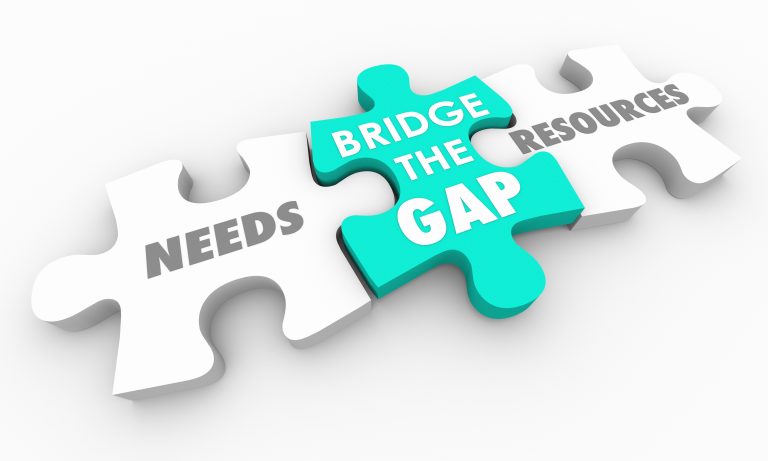
Image source: GOXI
Before the construction of the Golden Gate Bridge in 1937, economic growth in San Francisco was falling behind the national average due to the constraints on travel between the city and neighboring communities. The city was, at the time, the largest in the United States (U.S.) served by a ferry service, and congestion at the docks was inhibiting trade and the movement of people. Today, millions of people cross the bridge, which has become one of the most recognizable landmarks in the world.
Efforts to boost beneficial ownership transparency (BOT) around the world are similarly facing a choke point and the need to bridge a chasm. On one side of the chasm is a great deal of activity to advocate for BOT. This activity, led by civil society, has succeeded in placing beneficial ownership (BO) firmly on the international policy agenda and, in some cases, led to the enactment of laws to implement BO reporting requirements. U.S. Congress’ recent passing of the National Defense Authorization Act, which creates BO reporting requirements for all U.S. companies, is a notable reform. The U.S. moves on BO follow other measures globally, such as the European Union (E.U.)’s requirement of public BO registers in all its member states. For wealthy economies, such as those of the U.S. and the E.U., it is relatively straightforward to move from policy advocacy to legislation. However, they still face the challenge of actual implementation.
Many smaller economies and even some larger ones sit on the other side of the chasm. They hear the demands for more transparency on BO and appreciate the benefits it can bring in terms of contributing to more open and competitive economies and combatting corruption and illicit financial flows. They want to turn political will into policy and policy into action. Yet, they lack the expertise on BO and the financial resources to access technical assistance to fund the design and implementation of an effective BO reporting regime.
While civil society can often access the modest budgets needed for advocacy campaigns, the same budgets are not sufficient to provide technical assistance to governments for implementation. Governments seeking technical assistance often struggle to access suitable budgets to have a real impact and deliver effective BOT. In a paper that we co-authored for the British government and published in March 2019, we provide an estimate of the costs of implementing an effective BO regime. This can run into the hundreds of thousands of dollars or even low millions, especially when the ongoing administration costs are taken into account. These may seem large sums but pale into insignificance when compared to the costs of the issues that BOT helps to tackle, including corruption, tax evasion, and money laundering. Estimates of the global costs of these run into several billion, even trillion dollars per year for governments and their citizens.
The March 2019 paper also highlighted the insufficient levels of technical assistance available to governments and the fractured nature of the assistance that is available. This remains the case with the coronavirus pandemic delaying efforts to improve the situation. Some of the reasons for poor levels of technical assistance are as follows:
- The reluctance of development institutions to support BOT due to doubts over its effectiveness or a belief that there are other priorities in the battle against corruption and money laundering. Although concerns about how to apply constrained resources might be understandable, doubts about the effectiveness of BOT are mostly a hangover from the lessons learnt in early adopting countries. The scrutiny in many countries over Covid-19 related public procurement highlights the continuing need for BOT.
- A lack of awareness amongst governments of what technical assistance is available and from whom, as well as what to ask for. Political commitments are usually driven at a political level, and that doesn’t always mean that those at the technical level know where to turn. Some governments have focused on elements they understand, such as legislation or upgrading IT systems, without making some key policy decisions first. In a recent project in West Africa, we witnessed a government passing legislation without making some key decisions, which obstructed implementation and led to spending more time and money than necessary on IT consultants.
- Governments may also be reluctant to ask for help as they view it as admitting that they have a problem. Governments are reluctant to discuss sensitive issues such as levels of corruption, money laundering, and other illicit financial flows. The UK has had to take legislative action to force its overseas territories to make their registers public. To overcome this sensitivity and reluctance, BOT can be expressed in positive terms of its contribution to creating an open and competitive business environment and making the economy more attractive to investors.

Image source: d-tools
So how do we bridge the chasm? The chasm is between advocacy for BOT and the technical assistance required to implement a BO register and bring about real transparency to business ownership.
One step would be for donor organizations to direct budgets to technical assistance rather than only supporting advocacy. Campaign groups are a very effective way to encourage the government to want BOT, but government needs to be supported to get there. There also needs to be some platform to co-ordinate technical assistance and build awareness of what help is available. Open Ownership is doing useful work with a small team and limited resources, especially on a common data standard, but help is needed through the whole implementation journey. Clarity is needed on the work required to implement an effective BO register from the moment of political comment through a series of policy decisions and practical questions to having an effective register in place. This will vary as each country is starting from a different point. Some already have sophisticated corporate registers; others do not.
Just as building the Golden Gate Bridge helped to unlock the Bay area’s economic potential, bridging the chasm will unlock the contribution that BOT can make to more open economies and combatting corruption, tax evasion, and money laundering. The bridge to cross this chasm does not have to be an engineering miracle or require new technology, but it will require financial resources. Much of the knowledge already exists, and as more public registers are implemented, governments can learn from the experience of their peers. Putting resources into bridging the chasm and providing technical assistance to countries that want to implement BOT will have a real impact on enhancing transparency, building competitive economies, and battling corruption.
Michael Barron and Tim Law are independent consultants who have advised governments on four continents on implementing effective beneficial ownership reporting systems.
